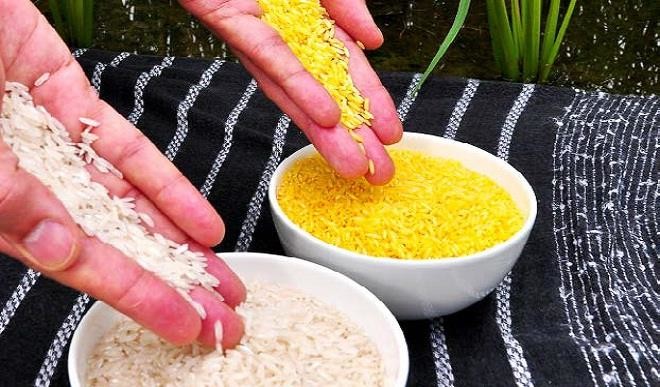What they do not tell you about Genetic Modification (III)
There is a worldwide campaign by Monsanto to stop labelling of GM foods for consumer identification. The fact of the matter is that, many of the GM products aren’t good for the environment and aren’t good for human health. In over two decades since the first generation GM products were made, they’ve not lived up […]


There is a worldwide campaign by Monsanto to stop labelling of GM foods for consumer identification. The fact of the matter is that, many of the GM products aren’t good for the environment and aren’t good for human health. In over two decades since the first generation GM products were made, they’ve not lived up to the hype and expectations. There were just too many unknowns, hence the delay in regulatory approval in most countries.
Many European countries out rightly banned the development and planting of GM crops on their lands; where this was permitted for research, stringent conditions were set to avoid the GM crops contaminating non-GM crops. Nigeria neither has the capacity or the competence to monitor and control these products; despite the passage of the biosafety bill (I was involved in drawing up the national biosafety guidelines), the country does not have sufficient manpower to manage or develop the technology.
The drive the get the biosafety passed was mainly to allow dumping of GMO in Nigeria, and the corporations will not be responsible for the consequences, since we have a biosafety bill purportedly suggesting that we have the wherewithal to deal with such emergencies.
We don’t! Those who pushed for the passage and signing of the bill into law were merely seeking to please foreign corporations, they were not acting in the best interests of the people. In most advanced countries, the issues of developing and managing GM is a matter of high national priority; the entire process is well thought out through serious deliberation by experts in the field of genetics, environment and policy.
For instance, Nigeria doesn’t have the competence to do a thorough risks assessments of GM products beside what the merchants gives them; how could the national biosafety agency guarantee the safety of our people when it can’t carry out the most basic of its mandate? Before a GM product is accepted into a country, it is usually assessed for several years; already there are products coming into our markets without the necessary safety assessments beyond what the corporations issued from their work.
Furthermore, in almost everywhere that GM have been tested, they’ve contaminated neighbouring crops, even when the standard separation distance were maintained. This is a serious threat to biodiversity; very soon all the crops will be turned into GM.
There is also the effect of the use of glyphosate, which will destroy other crops and shrubs that provide food for other organisms, thereby leading to their decimation. Some of the affected organisms play vital roles in maintaining balance in the ecosystem.
According to the report commissioned by the UK government on the environmental impact studies of GM crops, the director reported that, their research found that overall, GM crops would have a negative impact on farmland, birds, wild flowers and other wildlife.
Similar findings have been made in other European countries, including Germany and Scotland, where there is a ban on growing GM crops. This is a serious issue, requiring utmost care to handle, if it were not to destroy our farms and farmers.
Maize is central to culture, and economy of Mexico; it is an essential part of their cuisine; yet the formerly self-sufficient country now imports more than a third of its supply. This is largely due to the strong-arm tactics of corporations such as Monsanto, DuPont Pioneer and Dow Agro-Sciences, which have forced GM into the country, but also stymied public-sector researchers, who were trying to produce drought resistant maize strains not dependent on Monsanto’s herbicides. Mexico’s caution over introduction of GM is driven by the desire to conserve genetic diversity of a crop vital to its people.
Nigeria is not anywhere near producing its own GM crops in line with our unique geography and strains, rather we are preparing the ground for the country to become a dumping ground for foreign products with deleterious consequences to our farmers, health and environment, with our eyes and ears wide opened.
There is currently no mechanism on ground to monitor the type of agricultural produce that comes in to the country, which theoretically could include GM products; Nigeria needs to always consider its national interests in formulating policies; a lot of the agencies, and even ministries, are engaged in activities that are short-sighted and detrimental to the overall interests of society.
The biosafety bill and posture of those running the affairs of the relevant bodies suggests we haven’t learn anything from the raging debate on GM crops all over the world. Nigeria cannot pretend to know better than the European countries that have wholly rejected GM crops, while we don’t even have the competence to produce them.
Dr. Az-Zubair is a lecturer in Molecular Biology & Microbiology at Cambridge University, UK
Concluded
